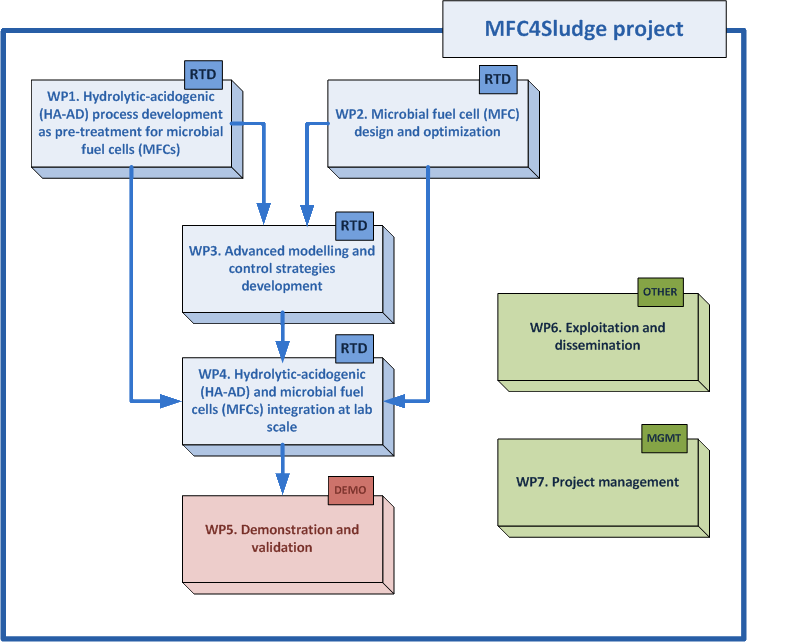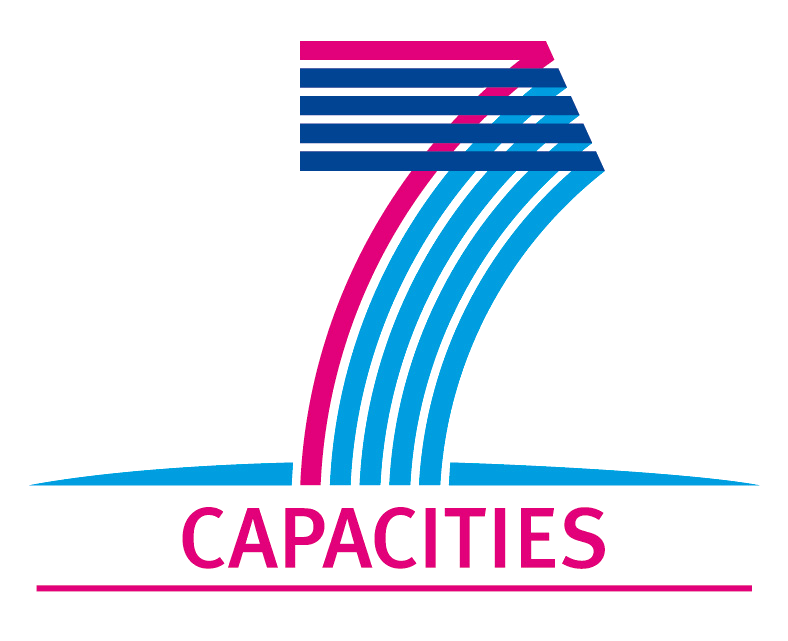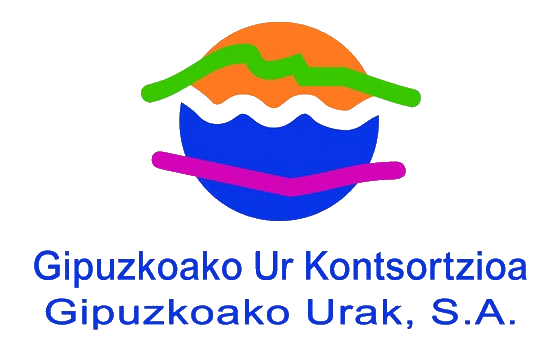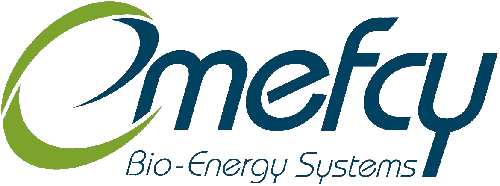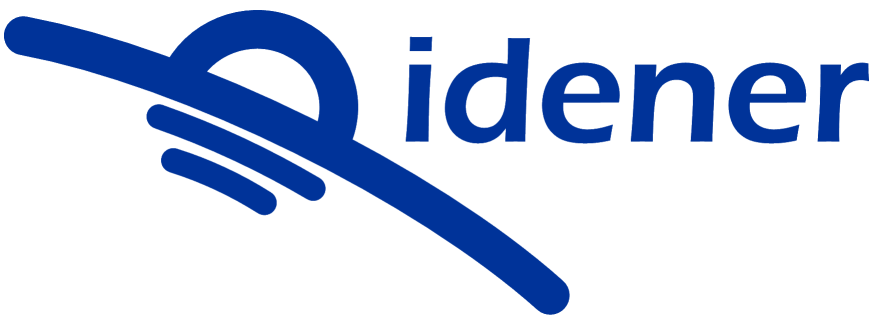WP STRUCTURE
A work plan broken into seven work packages (WP) has been established in order to accomplish the main project objectives. Specifically, four RTD WPs have been envisaged, each one corresponding to a project area of research: HA-AD as pre-treatment development, MFC architecture design, MFC modelling and control development and integration of the proposed solution. A DEMO WP has also been included in order to further test and validate the technology to be developed through the implementation of a commercial prototype. “MFC4Sludge” commitment with communication and exploitation of project results is reflected in the consideration of a dedicated WP6. Finally, project management will be also conducted in WP7. A summary description of the WP activities is provided next:
WP1. Hydrolytic-acidogenic (HA-AD) process development as pre-treatment for microbial fuel cells (MFCs). This WP focuses on the research required to suit a HA-AD process as a MFC pre-treatment
WP2. Microbial fuel cell (MFC) design and optimization. The purpose of this WP is to provide improved MFC designs aimed to better system performance and cost-efficient up-scaling process.
Intensive interaction between WP1 and WP2 is envisaged, and information will be often exchanged during their execution in order to achieve a compact solution and, additionally, avoid divergences that could affect WP4.
WP3. Advanced modelling and control strategies development. The activity of this WP will be related to the design of an advance predictive controller accounting for HA-AD-MFC process optimization while explicitly taking process constraints into account. To that end, a comprehensive modelling effort will be also conducted in this WP as for HA-AD and MFC processes as well as their interactions.
WP4. Hydrolytic-acidogenic (HA-AD) and microbial fuel cells (MFCs) integration at lab scale. The objective of this WP is to develop optimal integration strategies as for the HA-AD and MFC solutions developed in WP1 and WP2 respectively.
WP5. Innovative prototype at pre-commercial scale production. The broad aim of this WP is to demonstrate and validate the technologies proposed therein through prototyping and comprehensive field testing.
WP6. Exploitation and dissemination. This WP will ensure the proper dissemination and exploitation of project results so that a right flow of knowledge can flow from RTD performers to SME.
WP7. Project management. The aim of this WP is to ensure the fulfilment of the project’s goals and assure the success of the project by coordinating and managing the project activities in administrative, technical and financial terms; and to provide a pro-active relation and communication medium between the project partners and the EC.
Main interactions among WPs are depicted in the next Pert diagram:

